Main - News/Journal - Bio - Downloads - Confession
Releases - Lyrics - StykFaktor - Links - Contact
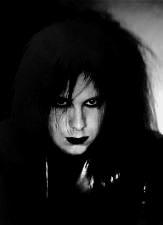
It could be argued that Visions Of Passion & Torture possesses an incredibly elaborate sound, that it is even a significantly realized presentation altogether, considering it began as a way to waste time. To understand this, you must first understand that in the heart of it all, is a person who really doesn't like music or people, a person who really doesn't like life at all. For Jeff Carline, there was no interest in pursuing a music career. In fact, all he was interested in was spending some time with some old friends making some noise. He had been a part of two musical ventures before. Jeff had played drums since he was thirteen. The first real project he joined was a punk band called Total Control. A few years at this, he realized that the people he was working with were too influenced with current popular musical trends to keep a solid foundation with their own project. Ironically, he would join up with two members of Total Control a year later to form Tribes With Knives, which began as an aggressive gothic band. He also switched to guitar and back-up vocals. "Tribes" had a lot of potential, but became too influenced with the sudden Seattle explosion to keep it's own soul. So even though he was disenchanted with the new direction, he stayed with it for another year, leaving just as they were signing with Red Decibel. In the long run, he's pleased with the decision because Tribes With Knives broke up a year later, and the CD is sometimes seen in cutout bins, along with the other bands that jumped on the grunge bandwagon. At that point he was sick of music and bands and artists, and decided to stay away from music altogether. 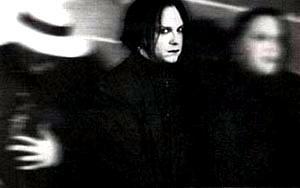
A year later, he got together with old friends Tom Findley and Steven Babcock to play with some equipment just for fun. It never amounted to much then, and debates often broke out when Jeff informed them that he had no intention of taking any of it seriously, and wasn't going to be putting any money into it. But they continued to toy with the equipment, just making noise mostly. But then something occurred that would change his life forever. His girlfriend of more than three years, with whom he had plans to marry, abruptly left him. The end was devastating to him, and his reaction was to seek refuge in the shed where they "rehearsed", drinking himself to oblivion. There began a chain reaction resulting in serious material of a different nature. Since Tom and Steven thought the music sounded good, they never questioned the change of attitude, or that he was seemingly taking over the whole project. In his words, "I think they were wanting to do something real, and suddenly there was this outpouring of music, and there I was suddenly taking it dangerously serious, to the point of obsession. I guess they just let me do my thing, intervening only when there was too much material to fit on a cassette." Another thing Jeff was doing was spending enormous amounts of money on equipment. They had no complaints there either. Although Tom originally played bass, he had an interest in keyboards. Steven decided to play bass, instead of guitar. As far as vocals, they had originally planned on Tom and Steven taking the front-man duties. But they had never come up with anything. With no real discussion as to when or why, Jeff, who was growing increasingly impatient, took the mike, and found his place. This is when the whole aura of the project was born. This was when the sound was defined and refined. He won't let you hear those early tapes, so don't ask. "I was really drunk then, and hadn't really had any experience singing, besides the occasional back up thing with "Tribes", so I can safely say with no apologies that it sucked. Really sucked. I tried listening to it sober, and thought, it's all over. But I suppose I got a little better…" 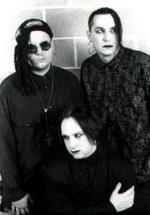
Their first cassette release, self-titled, contained seventeen pieces, ranging from aggressive gothic industrial to haunting ambient works. It contained over seventy-five minutes of music, much written and recorded by Jeff on his own. Approximately two hundred cassettes were given out. The song "Tools Of Knowledge" was considered by local radio station 105.7 The Point for their first local music compilation entitled "Pointessential". It missed being included by one point (no pun intended) for what some speculate as local scene politics. It did however receive fair play on the Point's local music program "Local Anesthesia". A second cassette was released, entitled "In Nomine Omniscient". Intended as an unofficial add-on EP to their previous offering, it contained two new songs, two covers (a reworking of one of Jeff's songs from Tribes With Knives, called "Caverns", and a powerful version of The Cure's "Pornography"), and a remix of "Invitation To Ruin", a song from the first cassette. Realizing the local politics involved, it was not submitted for the next Pointessential releases. 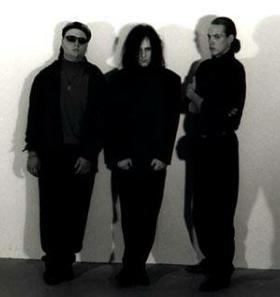
During this time, Steven began having personal problems that left him unable to continue with the band, and it was decided that they would find another bass player. Turning to a friend of the band for help, they enlisted Rodney Cornett to fill the position. Rodney was actually a drummer, who had played in a band with Steven prior to the start of this project, which adds a rather poetic twist. Rodney had an interest in guitar as well as drums, so he was able to pick up the bass quickly. For the next year the band refused to openly participate in the local music scene, opting only to perform at special events, such as "The Industrial Showcase" and "The Vampire's Ball". Eventually, they did perform at a small handful of shows, with an unusually receptive result. 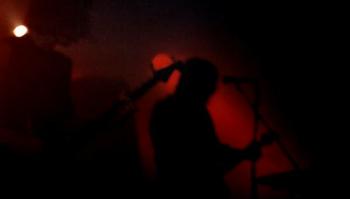
Their next offering was one song, recorded live in rehearsal, with vocals overdubbed later. The song was "I Saw Blood". The most unproduced recording yet, it was possibly the most accessible and well received yet. While not officially released, copies were dubbed to cassette and given away to anyone interested. 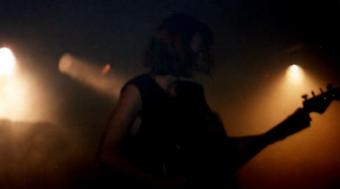
Work continued, and the next step was to get in the studio. In all, eight songs were recorded, including their newest, entitled "Collapse". But of the songs recorded, only "Collapse" would see the light of day, and Jeff isn't too thrilled with it. The recording was rushed, and technical problems with the vocal effects, left him wishing for the chance to redo it. But this wasn't to happen. It all came to a screeching halt in Chicago, at a benefit show for Elmhurst College's Radio Station. As the story goes, they had a promising sound-check, and then the band and crew returned to their hotel, while Jeff remained at the venue. Apparently they didn't come back. That is, until two hours after their scheduled start time. Jeff had set up the equipment on stage, and waited. And waited. Without a word, he removed the equipment from the stage and put it in their van. And without a word to his band-mates, he returned to St. Louis. Despite the support of industry people in Chicago, who knew that he was there to do his part, he lost the vision 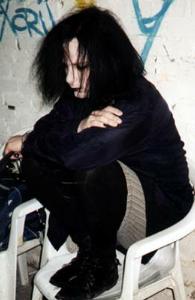
There began a difficult trial of disillusionment and self-doubt. The Chicago incident had left him so devastated, and so cynical, that he withdrew completely. When asked to talk about it, he seems reluctant, but then… "There are so many things about the music industry to despise, so many pitfalls to avoid, and the idea that your band itself could be so unstable… it’s like why even bother, because the sacrifices it takes to be involved in music, personal, financial, it takes it’s toll on you, mentally, physically, emotionally, and something like this happens and I just want to destroy everything around me. I begin to question whether I have the right to even try this…" He seems to focus on nothing in particular, as if he’s watching something that isn’t there, or maybe looking into the past. "I never set out to get here, but as it happens, you go along with it, and on the clearer days, you decide that maybe this is something to take serious. I know that from previous failures, I mean, I did learn a lot in those situations, about the effects it can have, but you see the real potential and it drives you insane. Even though this situation was more of a result of something else, and even though it never had some master plan, or theme, it like created itself, created it’s identity, and I decide to follow it and see where it goes. So I decide to actually try to be something, and do something with my life, and this is like a slap in the face, like, how dare you try to be anything? I don’t have a lot of resources, I don’t know the right people, I’m never in the right place at the right time, and that makes it so unlikely that I could accomplish anything in this business. I’ve received some mail, from people who want to see me continue, and that is so wonderful, but when you weigh the whole thing, it looks so hopeless." Then he looks somewhere else, and says: "I’m definitely scarred." He can’t look you in the eyes, and he’s decidedly bitter and cynical. He speaks about music with contempt. Yet in the next six months, he has added a computer, expensive sequencing software, new keyboards, synthesizers, and drum machines to his arsenal. 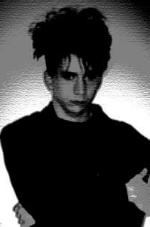
Enter Jared Oliver. Jared had previously played bass and keyboards in a gothic band called Tell Tale Skin, based in Springfield MO. They relocated to St. Louis in hopes of better exposure, only to fall short due to personality conflicts, ultimately resulting in their demise. Having mutual friends in the band One Violet Green, a regional industrial group, Jared was given Jeff’s number. After offering to assist Jeff in keeping the project alive, they proceeded to work, recreating the material to incorporate new equipment. This was a time consuming process, scheduled around day jobs and other responsibilities. Jeff had struggled throughout, trying to find, and define, his feelings towards the project and it’s future. His battle of internal demons, often resulted in rather unexpected twists. One such deviation, was taking time off to compose a complete orchestral score for the 1922 silent film Nosferatu. "I love early German surrealist films, Nosferatu, The Cabinet Of Dr. Caligari, Metropolis, there’s something wonderful and beautiful about these works, and the fact that these film makers invented techniques we take for granted. But watching these films now, I find the music distracting, almost with an exploitative effect, or like authenticity for the sake of authenticity. It took away from the mood the director might have envisioned. I mean, the music was always just piano or organ accompaniment, but when put up against modern composers, it comes off so weak. And where some people might argue whether it’s fair to compare, I think it is. But maybe you’d have to see our finished work to understand. I’ve shown it to some people, who probably would have never made it through the first ten minutes of any silent film. But they watched our presentation, and were astounded. The important thing, in my opinion, is that they weren’t astounded by our score; they were astounded by the film. Once into the film, they forgot we wrote the score. And I think that was the best compliment." Perhaps an odd sentiment from any artist, but he’s passionate about it. The project was submitted to video distributors, resulting in positive responses. Plans were made with a national video distributor (who will remain nameless by request) to reproduce the film for national distribution. The company was eager to push the product, especially for the college markets. Unfortunately, there was a rival. Sort of. Another band, much more established, (who also won’t be named, out of respect) had also prepared a "Nosferatu" project. Even thought it was only a "Best Of" compilation played over the film, it was enough to scare the distributors into shelving the project. Months of hard work went down the drain. Even though the rival project wasn’t very successful, there are no further plans to release this version, although it is included in Jeff’s list of "One day…" scenarios. 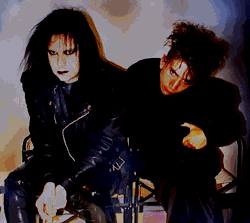
Distraught over the turn of events, they decided to get back to Visions Of Passion & Torture. Despite an air of uncertainty, the old material was restructured, and new material was created. As a favor to St. Louis band Die Symphony, they performed a live show. This was during the spring of ’98. Taking the opening slot, they performed a half hour set, and although it felt different than before, it met with the enthusiastic approval of the audience. The next show was an example of a plan gone wrong. This was another favor, and it went disastrous. Without going into detail, suffice to say, he almost walked off the stage. Disgusted by that experience, they returned to work. 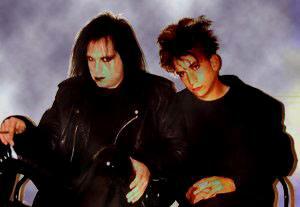
Although these were the only public appearances in 1998, there were a lot of other changes. Time can heal many wounds. The scars from the Chicago incident run deep. Jeff possesses a work ethic forged by the tragedies and failures of his past. He’s become extremely cynical, and every move is calculated against his chances for survival and recovery. The downside of this, is that it makes him extremely difficult to work with. "I put a lot of unusual pressure on the people I work with. I’m not demanding, it’s not like that. It’s that I intentionally distance myself. I am very proprietary of my work. Very protective… I don’t simply think of anyone as a session player, but… it’s hard to explain. They’re very important to me, the people I work with. At the same time, I can tell you, that I probably couldn’t be in a band with me. But I don’t know how else to do it anymore. This project has become part of me. If you’re arm was a part of a band, you wouldn’t’ want to give free reign to your band-mates to place any tattoo they wanted on it. It’s sort of like that. That’s a crappy analogy, but… well, I know how it looks, and yeah, I’m a mess." So, how does that work? 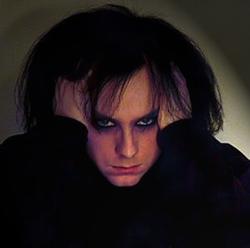
"It’s like this. No one has to be here. I don’t force anyone to work with me. If they can deal with my neurotic methods, they are welcome to be here. But if they need more, they are welcome to go off and do more. There won’t be any hard feelings. But bottom line, is that I have to protect myself, and that’s it. There’s not much left to negotiate. This is a well-defined project. It’s like a play, even though this play adds new chapters. And it’s going to continue. I can offer a role, take it or leave it. You want to play the heroine? Cool. You can be the heroine. You want to be the villain? Cool. You can be the villain. And you can offer suggestions, or input, I love that. But it all has to stay true to the play. Some musicians resent that kind of attitude, which is why I try to explain this as well as I can. But it you were an actor, and I wrote and directed Off Broadway plays, you wouldn’t resent it. If you did, you would write your own play. See what I mean? This is the only approach I can take anymore... Some times it sucks knowing exactly what you want to do." Yet, even though it’s said with seemingly firm resolve, there is still an air of uncertainty. Perhaps it’s voices from the past. Perhaps. The discussion of work ethics is relevant however. In October of ’98, Jared joined Die Symphony full time. There are no hard feelings, in fact Jeff is very supportive of the move, stating: "It has never been my intention to stifle anyone’s creativity, ever. I mean, I wish him the best of luck. And we’re still friends, we still get together, talk about music and bands, and whatever else." His ability to deal with the change is certainly an indicator that those work ethics he worries about so much, are in fact working out. And where does he go from there?
Now work could begin again. And even though the working relationship is different, it does have one very positive and reassuring effect: No matter what happens regarding the people Jeff works with, as long as he is there, Visions Of Passion & Torture will continue. Reassuring indeed.
The Independent Denial CD collection marks the close of Act I, the curtain is drawn while the stage is prepared for Act II. Rene Lanoloy – 1998 You can email Jeff at tortured@passiontorture.com Credits: Band Photos: Composite Photo Work: Jeff |
|||